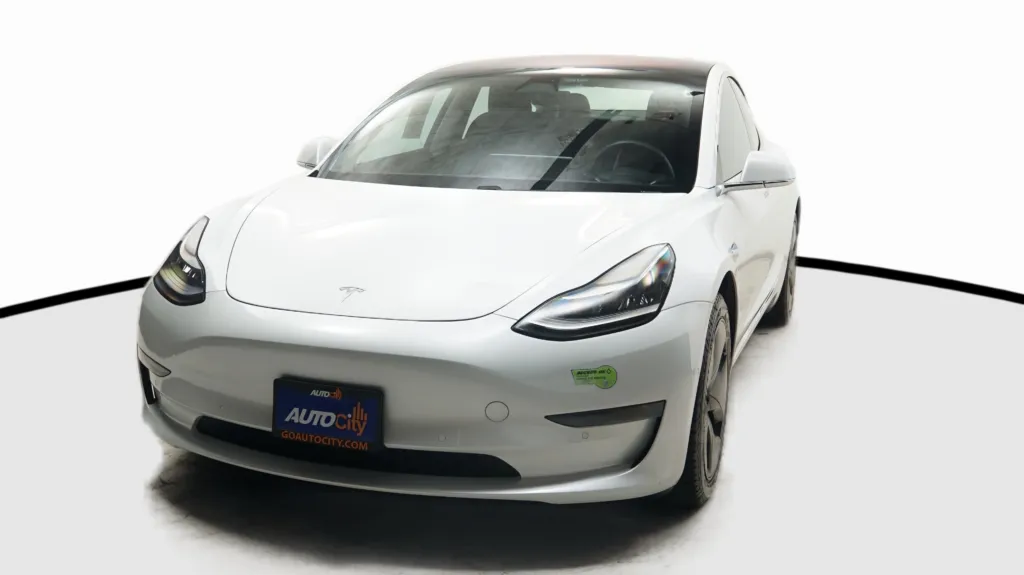Salvage Titles: The Rest of the Story
Table of Contents
Salvage Titles: The Rest of the Story

There are many types of branded vehicle titles. Learn what you should avoid when shopping for a used car.
Previous articles have covered the dangers of buying used cars whose titles have been “branded” because they’ve been rebuilt after a major collision or sustained flood damage . But below are actually a number of other kinds of branded titles you should know about:
Odometer rollback . Used cars with fewer miles sell for more than those with higher miles, which leads some unscrupulous sellers to tamper with the odometer in order to show less mileage. Make sure the mileage on the title and the vehicle match up. You can also look for signs of tampering with the dashboard (in order to access the odometer) and make a general assessment if visible wear and tear seems to fit a vehicle with that mileage.
Hail damage . A car can receive many small dents and paint chipping in a hailstorm. If the car wasn’t worth a lot to begin with, removing all those dents and repainting could exceed the threshold of its fair market value, which means the insurance company will total it. Look for signs of shoddy paint work to avoid a hail damaged car because some months down the road the paint job will probably start to warp and peel.
Theft recovery . When a car is stolen, after a certain time the insurance company will pay it off. If the vehicle is eventually recovered, typically with many parts missing, the car will be sold off to someone who might replace the missing parts and get a salvage title for the car. Again, the big question mark is whether or not everything was repaired correctly and to high standards.
Junk or Non-Repairable . When the damage is severe enough, the state gives it a “junk” title, which means it’s not allowed to ever be driven again. It can only be sold for parts or scrap. Theoretically, you should never find this on a title when shopping for used cars meant for driving, but it does happen occasionally.
Lemon . Many states have lemon laws that protect consumers from vehicles that have excessive mechanical problems. To receive the lemon title brand, the problems with the car typically have to be something fairly serious (related to safety or that make the car essentially inoperable), but not always. A vehicle history report will reveal if the car has ever been designated as a lemon. Lemon laws vary by state, but generally speaking a car can be designated as a lemon for the following reasons: 1) It’s out of service for some number of days (usually 30) in its first year and remains defective; 2) The car is serviced a set number of times for the same problem (usually three or four) but still remains defective; or 3) the car experiences a set number of catastrophic defects (fewer than what’s in #2) and remains defective.
Manufacturer buyback . Manufacturers end up buying back some of the new vehicles they sell. In some cases they buy back a car because it had a serious defect. In other cases it might have been relatively minor but the customer insisted on the manufacturer doing the buyback. As with all branded titles, it’s just hard to know if any problems were adequately addressed.
Salvage title vehicles should be avoided because you simply don’t know if the damage done was properly repaired or what further problems will show up down the road. In some states it can be very difficult to get a salvage title vehicle registered and insured. And it’s nearly impossible to resell them for anything worthwhile.
If you want to avoid buying a car with a branded title, the first thing you should do is check the history report on any vehicle before you spend time evaluating the vehicle in person. A good used car dealership will make history reports available for free on each of its vehicles. A history report will show the title history of the car over its entire life, which means even if a branded title has been “washed” clean, you’ll see if it ever had a branded title.
At Auto City, we list CARFAX reports for every car we carry. We do not sell vehicles with salvage or branded titles.
To learn more on the topic of salvaged and branded titles cars, read these two articles:











